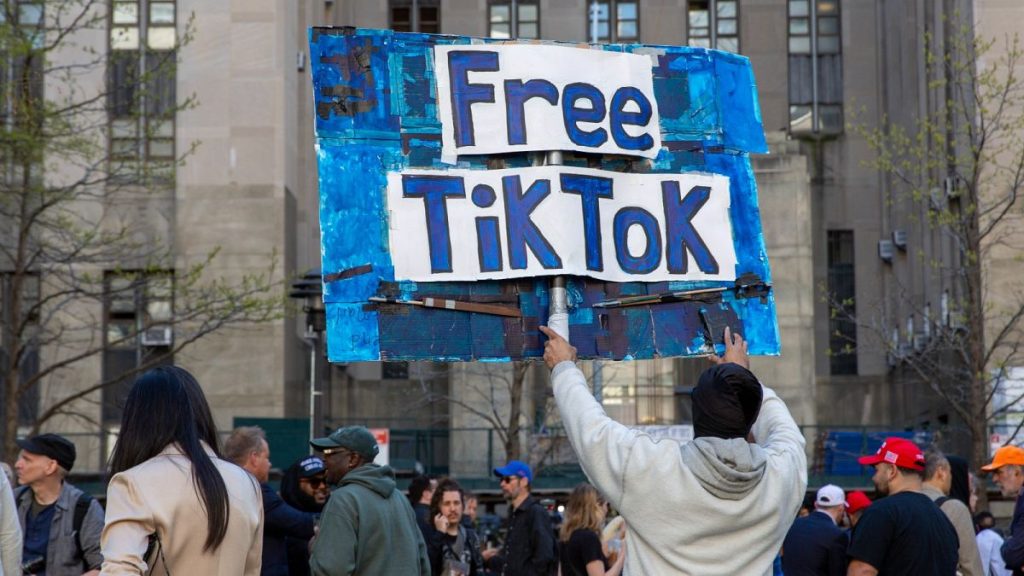The looming threat of a TikTok ban in the United States has cast a long shadow over the platform’s vibrant creator community, leaving many in a state of anxious limbo as they await a Supreme Court decision that could drastically reshape their livelihoods. The crux of the issue lies in a law passed by Congress, mandating that TikTok’s Chinese parent company, ByteDance, divest from the app or face a nationwide ban. The legal battle hinges on whether this law infringes upon the First Amendment right to free speech. The US government, citing national security concerns, argues that the law is constitutional, while TikTok maintains that a ban would effectively silence the voices of millions of American users.
For creators who have built their careers and incomes around TikTok, the potential ban represents a significant existential threat. Many have expressed feelings of anxiety and frustration, grappling with the possibility of losing the platform they have invested so much time and effort into cultivating. The uncertainty surrounding the app’s future has led some creators to contemplate quitting altogether, while others are frantically searching for alternative platforms to migrate their content and audiences. The economic fallout of a ban could be devastating, particularly for those who have left traditional jobs to pursue full-time careers as content creators on TikTok.
The potential disruption extends beyond individual creators, impacting the online communities that have flourished on the platform. These communities, built around shared interests and creative expression, risk being fragmented and dispersed if TikTok disappears from the American digital landscape. The loss of these spaces could have far-reaching consequences for the way users connect, share information, and participate in online culture. The interconnectedness fostered by TikTok, and the unique ways it allows creators to interact with their audiences, would be difficult to replicate on other platforms.
While the majority of creators express concern and apprehension, some remain cautiously optimistic. They point to previous instances where similar threats of a ban ultimately dissipated, suggesting that this current situation might also resolve itself without a complete shutdown. However, this optimism is tempered by the understanding that the current legal challenge carries significant weight, and the outcome is far from certain. The Supreme Court’s decision carries immense implications, not only for TikTok and its creators but also for the broader landscape of online content creation and the legal boundaries of government regulation in the digital sphere.
As the legal battle unfolds, creators are exploring alternative avenues to safeguard their careers and connect with their audiences. Some are diversifying their online presence by establishing accounts on other platforms, while others are focusing on building email lists and other direct communication channels to maintain contact with their followers. However, many are hesitant to abandon TikTok entirely before a final decision is reached, recognizing the platform’s unique reach and engagement capabilities. This cautious approach underscores the precarious position creators find themselves in, caught between the need to prepare for the worst-case scenario and the desire to maintain their presence on a platform that remains a vital source of income and creative expression.
The Supreme Court’s decision will have immediate and far-reaching consequences. If the ban proceeds, app stores and internet service providers will be prohibited from offering TikTok, effectively cutting off access for new users and preventing existing users from updating the app. This would gradually render the app unusable, leading to a significant decline in active users and potentially crippling the platform’s viability in the US market. The Justice Department acknowledges the disruptive impact of such a ban, while TikTok argues that even a temporary shutdown would inflict irreparable harm. The impending decision marks a crucial moment for the future of TikTok, its creator community, and the ongoing debate over the balance between national security concerns and freedom of expression in the digital age.














